The strangest Doctor Who stories
The surreal adventures of Doctor Who
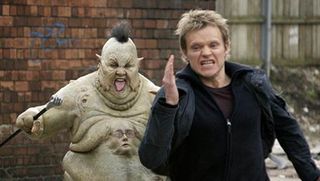
Doctor Who has been many things to many people over the course of its 50+ years. Sometimes it's funny, sometimes dramatic, sometimes scary. Often though, it's just plain weird and given that this is a show about an alien who flies around time and space in a telephone box, that's saying something...
As we count down to Doctor Who's return in series nine on Saturday (BBC One in the UK, BBC America in the US), look out for more great Time Lord-related features on 12DOVE this week. Read more about the new series in the latest issue of SFX, on sale now.
You can also prepare for the new series by reading our series eight reviews.
The Edge of Destruction (1963)
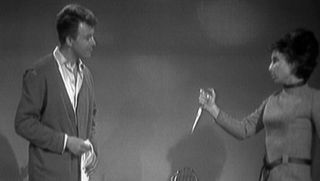
The original strange story. "The Edge Of Destruction (or Inside The Spaceship if you prefer boring titles) is a rare classic series two-parter, and only the third serial in the shows run.
Something goes wrong inside the TARDIS and Ian and Barbara are pitted against Hartnells mistrustful Doctor. Has an alien force captured the ship? Or is something even stranger occurring? Filled with surreal imagery, its a slow but genuinely unsettling tale and arguably the first example of Who telling a kind of teatime horror story.
The Romans (1965)
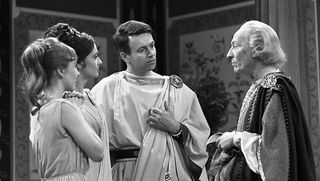
The Romans doesn't look like an especially odd Doctor Who story but it is. For a start, the Doctor is in virtually no peril. He gets into a scrap in episode two and then punks out Nero by pretending to play a tune on a lyre that only the most intelligent can hear (he's miming, but everyone in Rome is too hipster to acknowledge that). But that's it.
Meanwhile companion Ian is sold into slavery, Barbara spends all of episode three being chased by a horny emperor (no, seriously, it's gross) and Vicky tries to poison Nero because it seems like the thing to do accidentally killing an innocent bystander in the progress.
Sign up to the SFX Newsletter
Get sneak previews, exclusive competitions and details of special events each month!
But the main WTF moment comes at the very end, when the Doctor accidentally inspires the sacking of Rome. Fine, he doesn't do it himself, but he certainly seems inordinately pleased about setting history on its course. Indeed, the story ends with him laughing his head off as Rome burns and, presumably, hundreds of people die.
The Web Planet (1965)

The Romans would have been the strangest Hartnell Doctor Who, if not for the story that immediately followed it...
The Web Planet is one of the most infamous examples of Doctor Who's reach exceeding its grasp. A six-part adventure, it finds the TARDIS landing on the planet of Vortis. The crew soon come to the aid of the Menoptera, who are under attack from the evil Animus an entity that controls an alien army, the Zarbi. So far, so sci-fi. But "The Web Planet" is made peculiar by its execution. The Menoptera are a bunch of camp butterfly men and the Zarbi are giant, plastic ants. All credit to the production team for going for it and designing such an extreme alien planet - something that new Who has mostly avoided.
The Feast Of Stephen (1965)
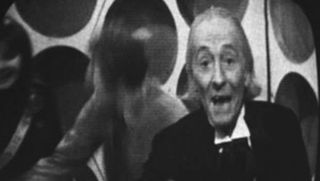
Were plucking this single episode of the epic (and sadly mostly deleted) Daleks' Masterplan for its very final scene. The original Doctor Who Christmas episode, its 25 minutes of ramshackle high-jinks as the Doctor and pals tit about on a film set and then, staring right to camera, the Doctor wishes a merry Christmas to all of you at home. Which rather implies that the Doctor knows that hes a fictional being!
The Mind Robber (1968)
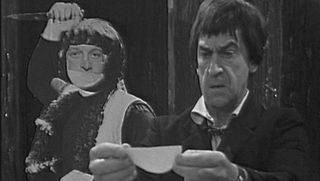
One of the shows first attempts at outright fantasy (though still tinged with science fiction, thanks to the ominous white robots), this is five episodes of meta-textual fun as the crew encounter the likes of Rapunzel and Lemuel Gulliver.
The storys weirdest/funniest moment comes during episode two. Companion Jamie (Frazer Hines) loses his face and forced to put it back together using a sort of puzzle thing the Doctor messes up, resulting in Jamie temporarily being played by actor Hamish Wilson. The reason for this is actually fairly mundane Frazer Hines had chickenpox and couldnt come into work that day.
Kinda (1982)

Even today, Kinda still shocks with just how daringly odd it is. When the new series does an episode as stylistically bold as, say, Listen or Love & Monsters, then its impressive, but over in 45 minutes. Kinda, however, was a four part serial. Viewers lived with this tale of possession, Buddhist symbolism, mania and rubber snakes for a full month.
Members of the human expedition to planet Deva Loka are going missing. Tegan is possessed by the spirit of the Mara a deadly entity that lives in the subconscious and the Doctor must save the day, as per. But the story belongs to Simon Rouse as Hindle, a man rapidly losing his mind. He's by turns hilarious, tragic and frightening. Watch it now, its a masterpiece.
The King's Demons (1983)
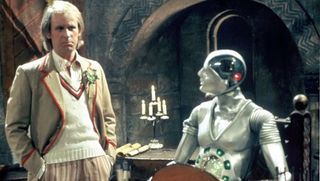
Seriously, what is it about? The Master has some sort of scheme which, even by his standards, is incredibly half-arsed. He wants to replace King John with a robot (would-be companion Kamelion, who was rapidly ditched by the production team for not working properly and, presumably, because he was uncannily terrifying) and stop Magna Carta. You know... for reasons.
At just two 25-minute episodes, it's an unusual '80s story, and perhaps because of that short length it doesn't make much sense. It would be okay if, like the similarly short Black Orchid or The Awakening it worked as a moody interlude between stories. But, er, it doesn't.
The Happiness Patrol (1988)
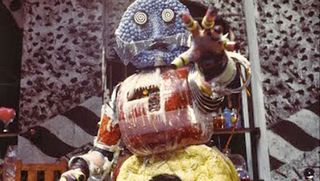
AKA The Day Bertie Bassett Lost His Mind. This infamous Sylvester McCoy story is actually rather good, but there's no denying its peculiarity. The TARDIS lands on a planet where sadness is outlawed and punished by the Happiness Patrols sort of like 2000 AD's Judges, but with pink wigs. The worst offenders are sent to the Kandyman, the aforementioned cyber-Bertie.
There's lots of interesting stuff going on beneath the surface of this story: anti-war speeches, Orwellian oppression and protests against Section 28. There's little doubt that, nearly 30 years later, it's still one of the most iconoclastic Doctor Who stories ever. And one of the oddest.
Ghost Light (1989)
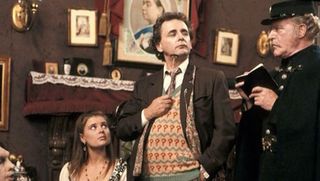
Over the years "Ghost Light" has developed a (not entirely deserved) reputation as the ultimate in inscrutable Doctor Who a brilliant mood piece, perhaps, but one that doesn't really make much sense. Some cast members have even said that they had to wait to read the novelisation to understand it. It's certainly the only Doctor Who story we can think of that features a companion being attacked by desiccated skin husks and a policeman being transformed into primordial soup and then served for dinner!

Will Salmon is the Comics Editor for GamesRadar/Newsarama. He has been writing about comics, film, TV, and music for more than 15 years, which is quite a long time if you stop and think about it. At Future he has previously launched scary movie magazine Horrorville, relaunched Comic Heroes, and has written for every issue of SFX magazine for over a decade. He sometimes feels very old, like Guy Pearce in Prometheus. His music writing has appeared in The Quietus, MOJO, Electronic Sound, Clash, and loads of other places and he runs the micro-label Modern Aviation, which puts out experimental music on cassette tape.

Filming has started on the second season of beloved Hulu show Paradise, only weeks after the hit Disney Plus show ended

The Last of Us' Neil Druckmann has a cryptic response to whether the TV show could pull a Game of Thrones and continue beyond the games: "I leave nothing on the line"









